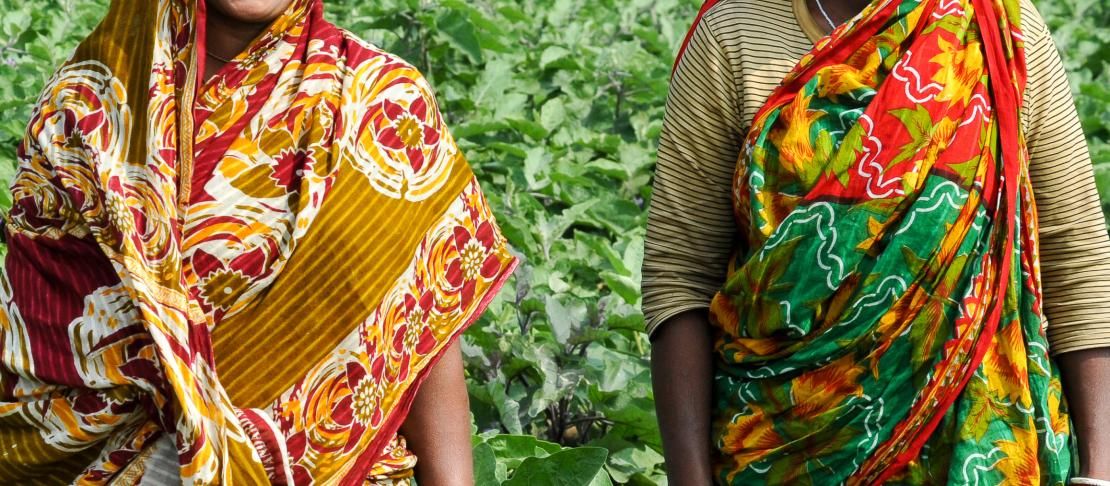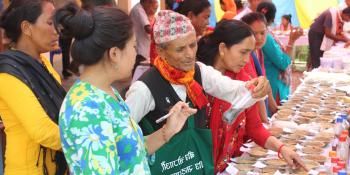Gendered responses to climate change in South Asia

by Sharmind Neelormi
A study was recently conducted on the gendered response to climate change by the UN Food and Agriculture Organization (FAO) and the CGIAR Research Program on Climate Change, Agriculture and Food Security (CCAFS) in the Chandipur village in Satkhira District, in the southwestern part of Bangladesh.
The study revealed interesting results. The inheritance law in Bangladesh usually provides women with a negligible share of the inherited property. Most of the homesteads and agricultural land are hence, owned by the male members of a family. Therefore, women have little rights over making decisions on agricultural practices, and often do not receive much benefit from the extension services provided by the national agricultural service.
The study also indicated a great demand for seasonal weather forecast with location specific agriculture advisory. Farmers here were found to have been practicing a number of agricultural techniques which fall under the category of ‘climate-smart agriculture’. Women practice vermi-compost, homestead gardening, and raise poultry. Men are involved in row cropping. Both men and women are involved in planting trees near ponds. For men, however, NGOs and media campaigns on new farming technologies were most influential, and they were generally keener to learn from climate analogues sites. According to female farmers, government agencies and NGOs have introduced various innovative farming methods in the village, and taught them how to improve their farming techniques.
More information
Get the CCAFS-FAO report Gender and Climate Change Research in Agriculture and Food Security for Rural Development
Read more blog stories about gender, climate change, agriculture and food security
Read more about Climate Change, Agriculture and Food Security work in South Asia.
This blog post was written by Sharmind Neelormi, Jahangirnagar University, Bangladesh. To get more updates on our research in South Asia, follow us on Facebook and Twitter @Cgiarclimate.


